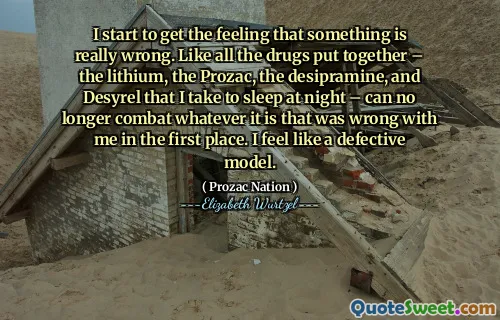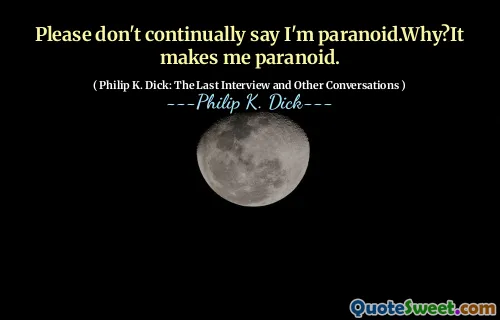
I start to get the feeling that something is really wrong. Like all the drugs put together – the lithium, the Prozac, the desipramine, and Desyrel that I take to sleep at night – can no longer combat whatever it is that was wrong with me in the first place. I feel like a defective model.
This quote painfully captures the relentless struggle that individuals facing mental health challenges often endure. The narrator's sense of despair is palpable, illustrating a moment where medical interventions—the very drugs designed to alleviate suffering—appear insufficient or even futile. They express a profound disconnect between the treatments prescribed and the persistent inner turmoil that remains unaddressed. The feeling of being a "defective model" is a haunting metaphor that resonates beyond the specific context of depression or illness; it embodies the universal human experience of not feeling quite 'right' or adequately functional internally and externally. The mention of multiple medications such as lithium, Prozac, desipramine, and Desyrel also highlights the complex and often exhaustive nature of managing mental health through pharmacology. It opens up important conversations about how the medical system approaches psychiatric treatment and how patients may internalize this regimen, sometimes feeling like a mere collection of symptoms rather than whole people. This raw admission of vulnerability and frustration can foster greater empathy for those navigating invisible illnesses, illustrating how the battle for wellness goes beyond physical symptoms and touches the core of identity, self-worth, and hope.

